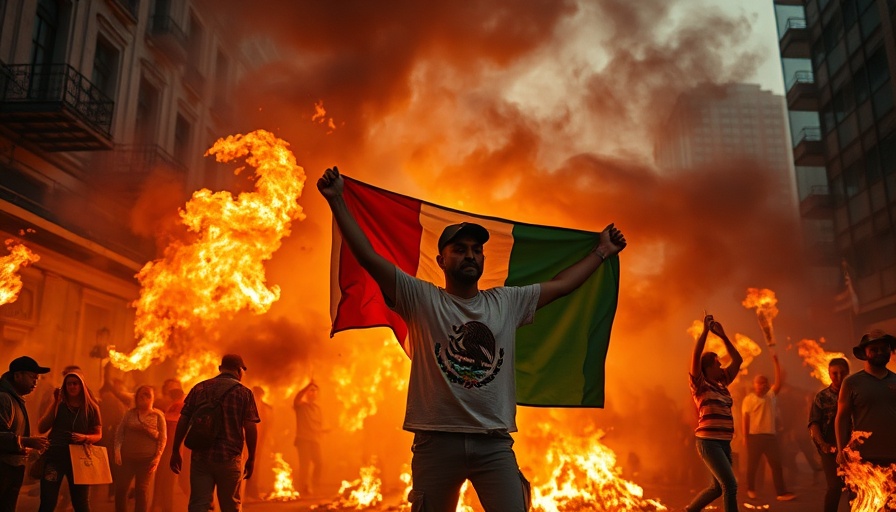
Unraveling the LA Immigration Protests: A Disturbing Turn of Events
As tensions escalate over immigration enforcement in Los Angeles, the deployment of the National Guard has changed the landscape of protests, igniting fierce debates on safety and civil rights. These protests, erupting in response to recent Immigration and Customs Enforcement (ICE) operations, have drawn thousands into the streets, creating roadblocks on the iconic 101 freeway.
What Sparked the Protests?
Initially peaceful, the demonstrations gained traction due to widespread discontent over aggressive immigration measures put forth by the Trump administration, including the memorandum signed by the president authorizing the deployment of 2,000 National Guardsmen. Governor Gavin Newsom's call to rescind this deployment reflects the deep concerns surrounding federal intervention in state affairs, describing the measure as "purposefully inflammatory" and a catalyst for increased tensions.
Implications for Civil Rights and Community Safety
The involvement of the National Guard and the violent clashes that have ensued place a spotlight on significant civil rights concerns. Activists argue that federal involvement can hinder peaceful protest efforts and exacerbate community fears about law enforcement actions. Meanwhile, clashes have resulted in injuries, including two Los Angeles police officers reportedly harmed by motorcyclists in the chaos of the protests, bringing to light the risks of violence amid civil unrest.
Anticipating Future Developments
With law enforcement on high alert and additional military resources on standby, the future of these protests remains uncertain. As tensions continue to simmer, the balance between public safety and the right to protest will be tested further. Observers remain watchful, gauging how these developments will influence policy discussions surrounding immigration and state-federal relations.
The ongoing situation underscores the importance of engaging in peaceful dialogues regarding immigration enforcement, a complex issue impacting countless lives. Citizens and local leaders alike are urged to seek constructive pathways forward, fostering understanding instead of division.
 Add Row
Add Row  Add Element
Add Element 



Write A Comment